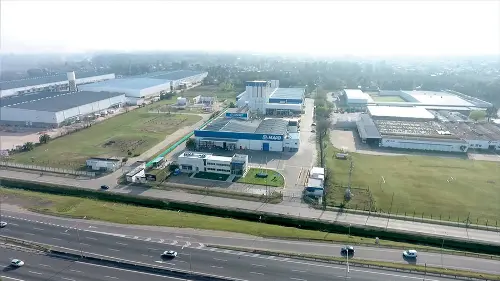

The international geopolitical situation to Argentina’s rescue
The worsening economic outlook for 2023 is compounded by the complexity of the political situation linked with the elections: but there are some reasons for optimism
The Head of ISPI's Latin America Programme analyzes the economic and political situation in Argentina
A complex political situation
Some positive factors
In this difficult economic, social and political situation, the international geopolitical context offers factors that might benefit this South American country. Argentina's most strategic regional relationship is with its main trading partner, Brazil. President Alberto Fernández, whose term of office expires in December, has prioritised strengthening ties with Brazilian President Luiz Inácio 'Lula' da Silva, both bilaterally and within a framework of regional integration agreements. Argentina and Brazil will seek to maintain the integrity of Mercosur for example, by not allowing bilateral trade liberalisation negotiations of the kind Uruguay would like to set up with China. Moreover, Lula's renewed commitment to protecting the Amazon and the environment, in stark contrast to former Brazilian President Bolsonaro, means the signing of the Association Agreement between Mercosur and the European Union is back on the agenda of European countries. Once the Agreement is signed, a process of progressive trade liberalisation will begin, which will benefit Argentine exporters.
The relationship with the US and China
Over recent years, Argentina has maintained a good relationship with the United States and, at the same time, strengthened ties with China. Maintaining good relations with the US administration is partly important because of the significant influence America exerts in multilateral financial institutions, which provide resources for Argentina. The International Monetary Fund (IMF), for example, which reached an agreement with the Fernández administration in March 2022 about a 30-month financing programme worth USD 45 billion, has shown great flexibility in its dealings with this South American country. First and foremost, Argentina received the largest ever IMF loan. Secondly, the IMF approved new disbursements of the loan even though the government failed to meet all of its commitments and also introduced a series of controls on the movement of capital and multiple exchange rates - interventions at odds with the IMF's approach. The IMF is unlikely to take stringent action before the elections, because the South American country would again default on its foreign debt.
Over recent years, there has also been significant Chinese investments in the energy, mining, infrastructure and technology sectors in Argentina. In February 2022, Argentina joined China's Belt and Road Initiative, which promised investment of almost USD 24 billion. The decision will pave the way for further Chinese investments, however many doubt that the actual investments will reach the amount being promised. The two countries recently agreed that Argentina will be able to import from China using the Chinese currency, the yuan, and this will allow Argentina to save its scarce reserves of US dollars.
Regardless of the government in power, it is very likely that Argentina will seek to maintain good relations with both the United States and China, despite the intensifying rivalry between these two nations. It is indeed competition between the two superpowers that may incentivise them to be more generous towards Argentina to prevent their rival from expanding.

Growing sectors
If the economic situation in the short term is difficult, in the medium term there are some sectors that present a more optimistic scenario: in addition to agribusiness, also the mining industry, particularly for lithium and copper, and the energy sector. Argentina, for example, has huge reserves of gas and oil in the Vaca Muerta basin (province of Neuquén, northern Patagonia). Vaca Muerta is the second largest shale gas deposit in the world and the fourth largest for shale oil. Thanks to the construction of a new pipeline, in a few months’ time gas will reach the province of Buenos Aires, reducing the country's energy imports. In future, the new pipeline will be connected to the Northern Gas Pipeline, which passes through Bolivia, and the flow of gas will be reversed: using existing pipelines, Argentina will be able to supply gas to Bolivia and Brazil. In the medium term, therefore, Argentina could once again become a net exporter of energy.
Antonella Mori







